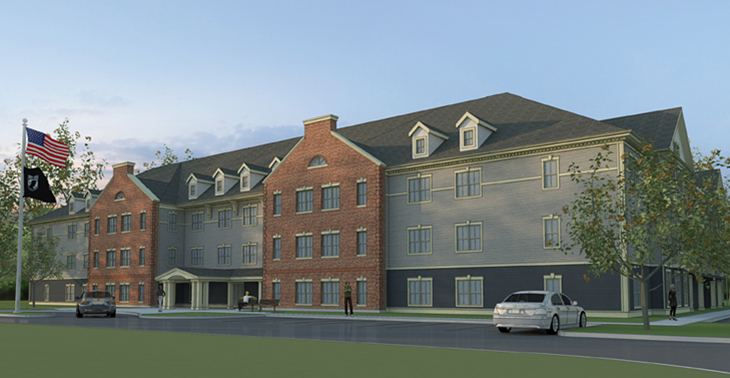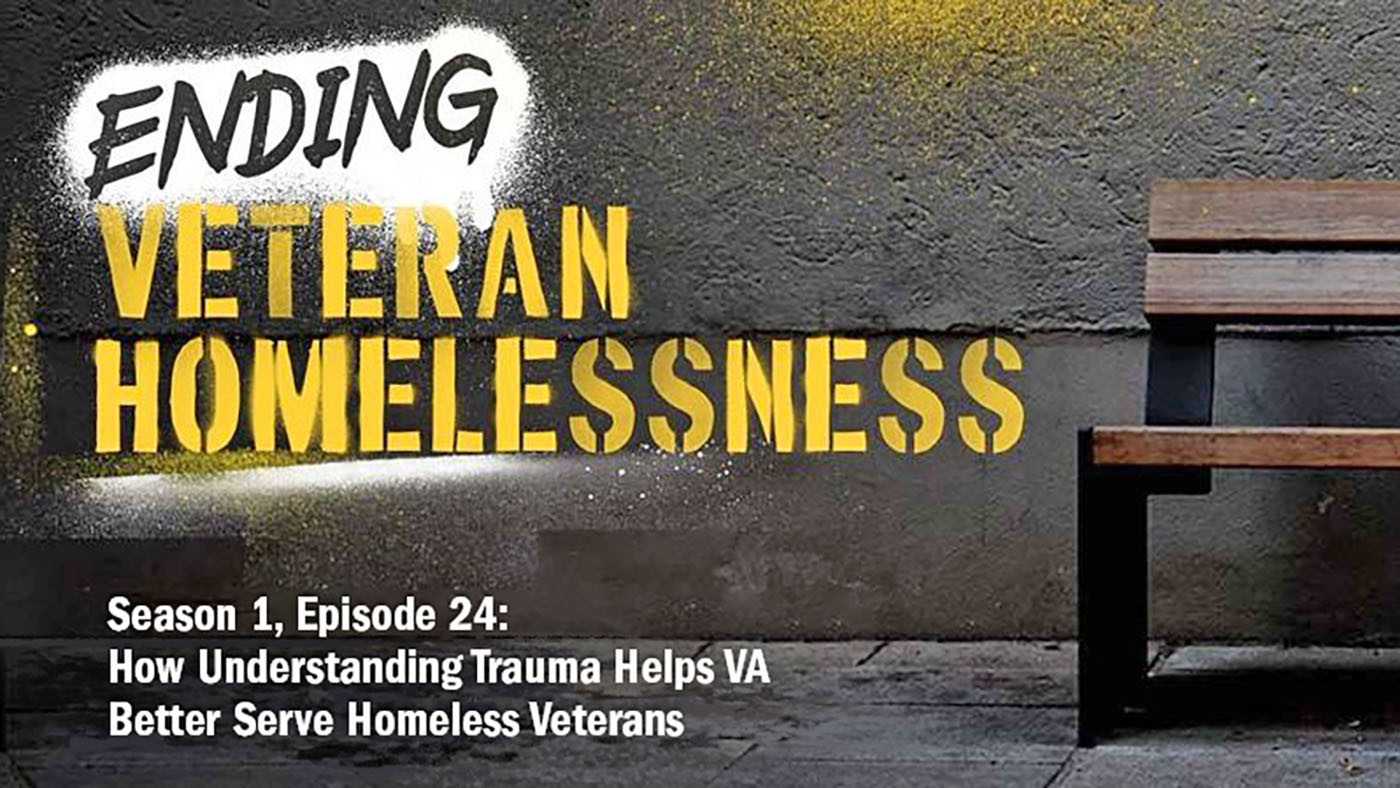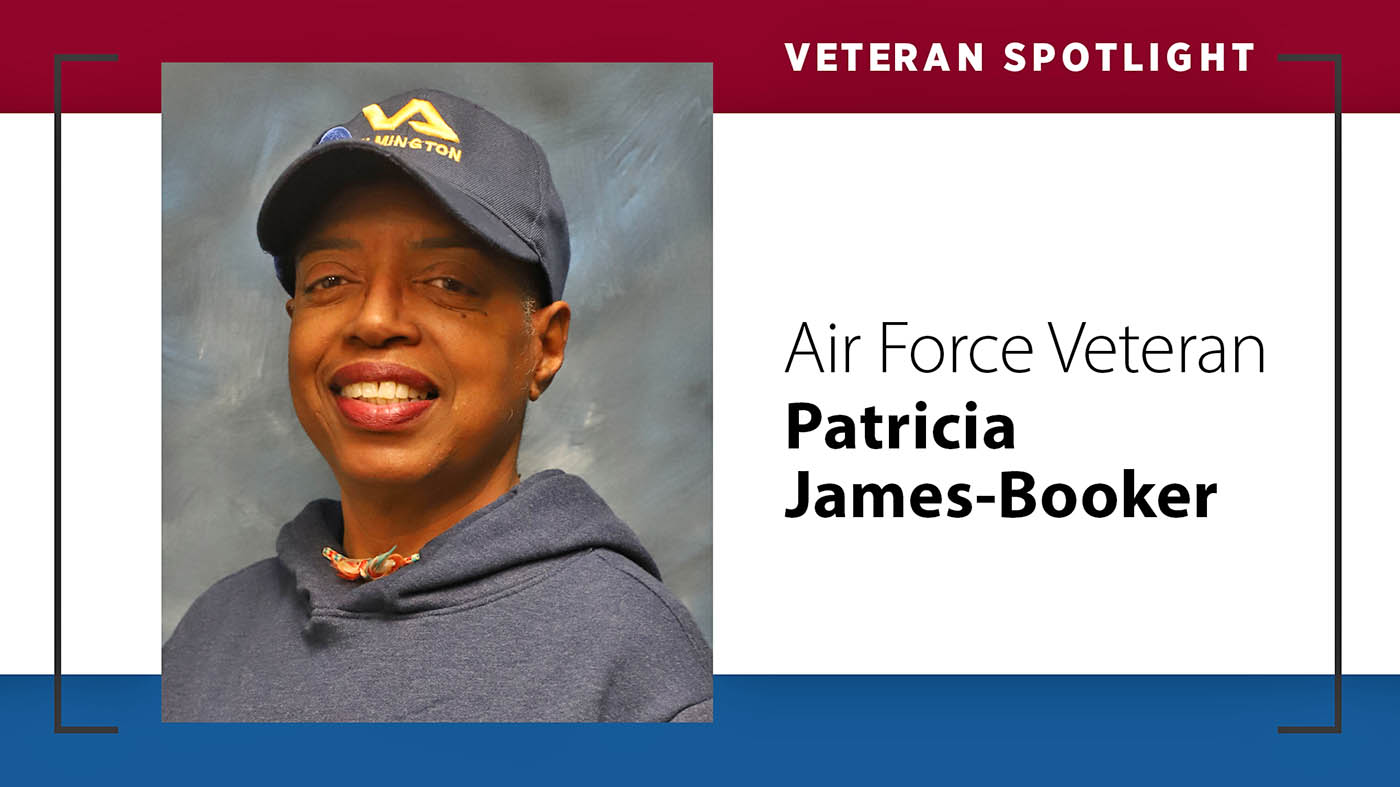Kind. Gracious. Funny. Unflappable. These are just some of the adjectives colleagues use to describe Bob Hallett, the director of the Health Care for Homeless Veterans (HCHV) program, who is retiring this month after a 25-year career at VA.
But the portrayal of Hallett that comes up most often is that of strong advocate—for Veterans in need and for the VA outreach staff who work to reach and serve them every day.
“Bob is the kind of person who always took the concept of service to others as one of his pillars of life,” said Peter H. Dougherty, retired former director of VA’s Homeless Veterans Programs, who advised seven VA secretaries on homeless Veterans’ issues and who was one of the main architects of the plan to end Veteran homelessness, issued in 2010. “Bob has helped thousands of Veterans move on to a better life and mentored many inside and outside of government on how to be more caring and compassionate people.”
Hallett, who retired on July 22, the day after he turned 62, is a licensed social worker who started his career in 1980 as a field operations coordinator for the Massachusetts Division of Alcoholism, part of the state Department of Public Health. He earned his master’s in social work from Boston University’s School of Social Work in 1981 and for most of that decade directed a variety of substance use and mental health counseling programs in the Boston area. He also taught social work classes at Boston, Wheelock and Smith College and at VA.
He arrived at VA mid-career in 1991, becoming supervisory social worker for a substance use rehabilitation program at the Bedford VA Medical Center (officially the Edith Nourse Rogers Memorial Veterans Hospital).
In the 1980s, the country’s policymakers were grappling with a surge in homelessness and a large population of Vietnam-era homeless Veterans who needed VA, but felt alienated from it. As the federal government took steps to do more to address homeless issues, Hallett said, “our medical center really embraced that effort.”
This was when VA’s first domiciliary care programs were opening, providing chronically homeless Veterans with much-needed clinical rehabilitation and treatment services. Hallett opened one of the first of these centers—the REACH Program Domiciliary—in 1994 at the Brockton VA Medical Center campus, south of Boston. In 1999 it was recognized as a clinical Center of Excellence. “It’s still serving Veterans today, and I’m proud of that,” Hallett said.
A multidisciplinary mindset
Opening the center also opened Hallett’s eyes to the complexity of homelessness and to the team effort needed to help Veterans resolve it. This multidisciplinary approach is the hallmark of today’s HCHV program, which Hallett has directed since 2008.
“Launching REACH, I gained a wider appreciation of the fact that Veterans need housing but also may require health care, employment and many other supportive services to be successful,” he said. “As a leader, manager and program director, I learned about the importance of building a strong team and valuing every member of that multidisciplinary team.”
As HCHV director, Hallett coordinates more than 600 employees from a range of professional disciplines. Most are social workers who conduct outreach to Veterans in the community and provide them with ongoing case management. These outreach coordinators offer Veterans in need an entry point to care at VA and are vital to furthering the goal of ending homelessness. Hallett also coordinates a nationwide network of transitional housing providers that contract with VA to provide homeless Veterans with a safe place to stay until permanent housing is secured.
A team-builder
Hallett’s colleagues attest to his dedication to team-building as a central way to holistically address homelessness among Veterans.
“Bob is committed to integrated care,” said Eileen Devine, national program manager for the Community Resource and Referral Center (CRRC) program, which Hallett helped develop in conjunction with the National Center on Homelessness among Veterans. Not surprisingly, it’s a program that embodies the collaborative method of addressing homelessness among Veterans. From Atlanta to Seattle, there are now 30 CRRCs providing homeless Veterans with one-stop access to community-based, multiagency services that promote permanent housing, health and mental health care, career development, and access to VA and non-VA benefits.
Dr. Keith Harris, Hallett’s supervisor as national director of clinical operations for Veterans Health Administration Homeless Programs, said Hallett pays close attention to the field staff’s perspective and is more than willing to seek advice from outside experts on the best way to end homelessness.
For instance, to develop a much-needed update to HCHV guidelines—essentially the outreach workers’ manual for addressing Veteran homelessness using proven techniques and best practices—Hallett assembled a wide-ranging work group of experts and field staff to contribute content. “That’s not a typical approach, and it resulted in a superior product,” Harris said. “Bob really does not have an ego.”
A colleague who keeps calm
Devine said Hallett’s success is largely due to his “unflappable” leadership style, despite his having to direct a large, far-flung staff virtually, via conference calls and online chats. “He always considers how a policy change or crisis may impact the staff,” Devine agreed, “and is very thoughtful and diplomatic in addressing the issues.”
Hallett’s levelheaded nature was on display just recently, Devine said, when a warehouse fire destroyed coats, boots, blankets and other critical supplies distributed to homeless Veterans at regularly scheduled Stand Downs. Despite being on vacation, Hallett jumped in to immediately address what could have been a major disruption. He calmly coordinated with colleagues to get items shipped closer to where they’d be handed out and in the process improved the supply distribution system, Devine said.
A career that’s tracked big reductions in Veteran homelessness

He said it’s a “no-brainer” that having a plan, collaborating with other agencies and community partners, and VA’s receiving of significant additional resources in 2010 to end Veteran homelessness has helped tremendously, with programs like HCHV, the U.S. Department of Housing and Urban Development-VA Supportive Housing and Supportive Services for Veteran Families enabling communities to directly house Veterans or provide critical services to prevent homelessness among those at risk.
But equally important has been VA’s concurrent adoption of Housing First, which put asunder the once-widespread notion that a homeless person should first become “housing ready” before gradually transitioning to a permanent home, a policy that most experts agree often perpetuates homelessness.
“A homeless Veteran can now be identified through the HCHV outreach worker and be referred immediately into permanent housing,” Hallett said. “And that’s a very different approach that requires a totally different mindset in terms of how you’re tackling the problem.”
Hallett admitted that he had to adjust his outlook at first, too. “I came from that ‘housing-ready’ background, and I had to keep an open mind to see how Housing First could function and make sure my staff had the tools to provide housing and care services in the most effective way,” he said.
As VA’s strategy to end homelessness has evolved, so too have the Veteran clients—and the challenges. HCHV outreach workers may now encounter Veterans of recent conflicts who are more trusting of VA but also expect a higher level of service. A significant number of older Veterans who are homeless require more housing in places near to geriatric and extended care services, Hallett said. Affordable housing for homeless Veterans—and more landlords willing to rent to them—is a constant need.
Leaving VA ready for what’s next
Ever the optimist, Hallett is confident that he is leaving VA’s Homeless Programs and HCHV well-positioned to go all the way in ending homelessness among Veterans.
One daily reminder is the 69-bed permanent supportive housing facility for Veterans over age 55 that Hallett has been watching be constructed from his Bedford VA office window. Set to open on Hallett’s birthday on July 21, he said Bedford Commons is just one representative example of many types of VA-community partnerships that are creating more housing for Veterans across the country—and that will help end homelessness once and for all.
In retirement, Hallett plans to spend time volunteering in the community, golfing, traveling to see his adult children and cooking Italian food for his wife.
“But as a lifelong social worker, I’ll never be too far from homeless Veteran issues and larger social service needs,” he said. “That’s who I am and what I’ll always be, and so I’m looking forward to staying involved in a life’s work that’s been so gratifying and rewarding.”
Veterans who are homeless or at imminent risk of becoming homeless can call or visit their local VA medical center, where VA staff are ready to assist. Veterans and their families can also access VA services by calling 1-877-4AID-VET (1-877-424-3838).

Topics in this story
More Stories
A unique program at Boston VA uses the principles of trauma-informed care to serve homeless Veterans with empathy and understanding.
An Air Force Veteran and volunteer faced homelessness but found housing with help from VA.
Navy Veteran Tim Healy could be serving a life sentence. Given a second chance, he now helps other justice-involved Veterans.







How many are off the rolls due to suicide?
I’m still waiting for the VA to stop trying to defraud me. They have been for 40 years.